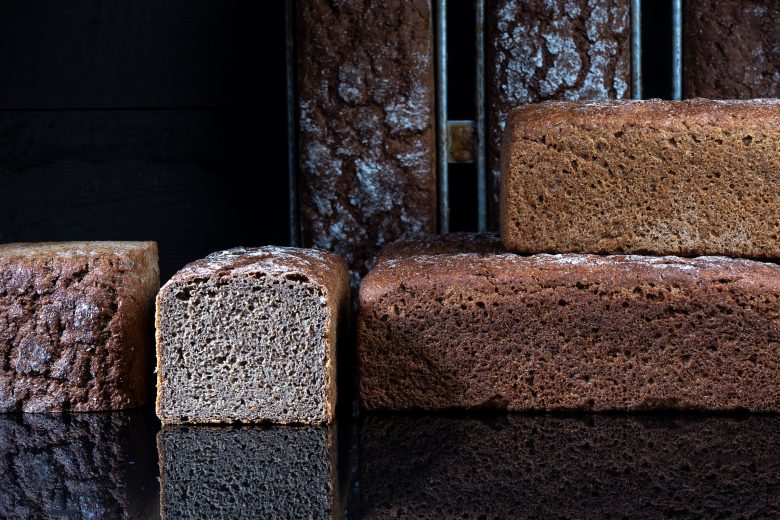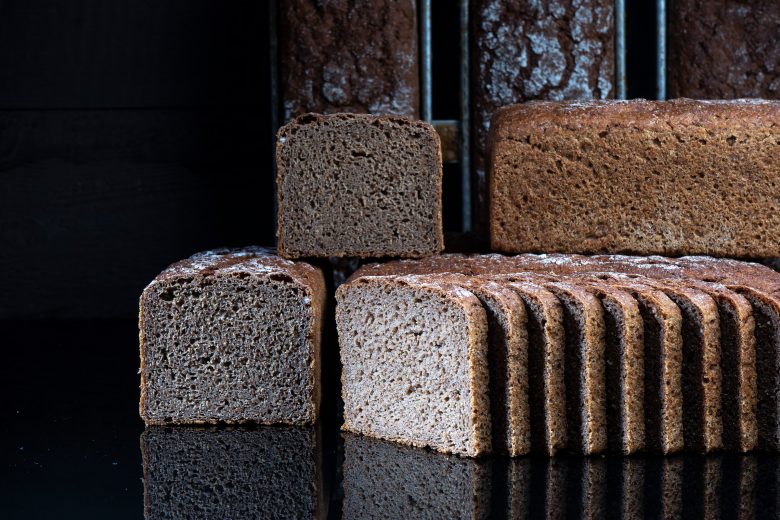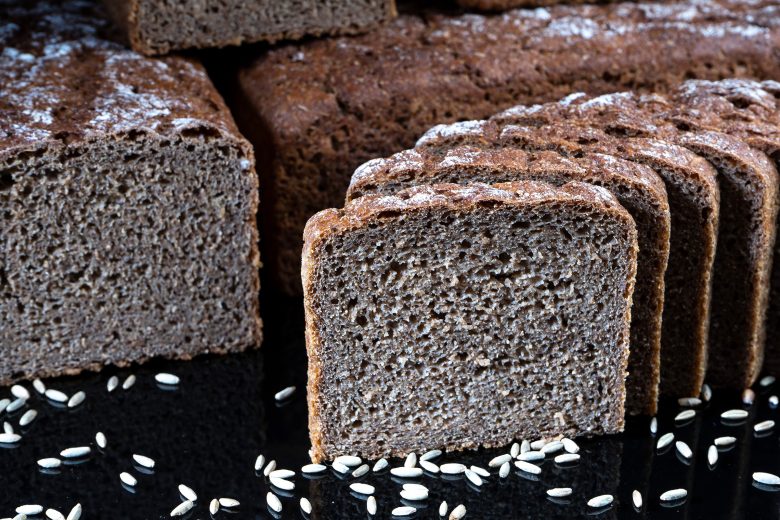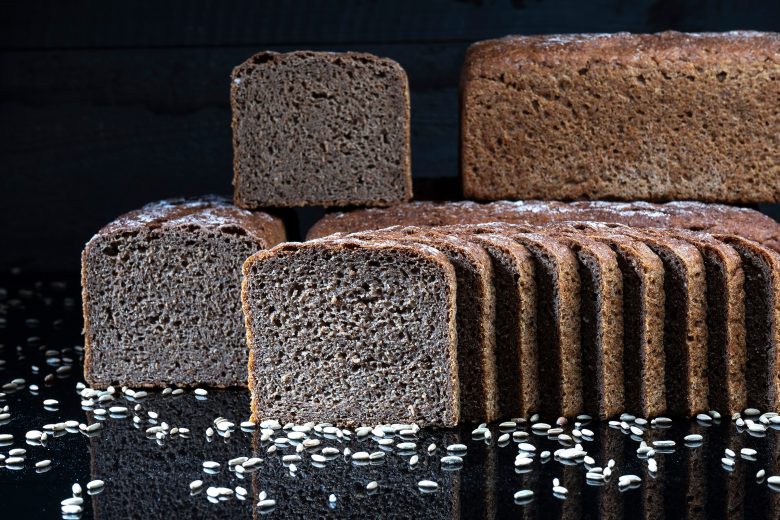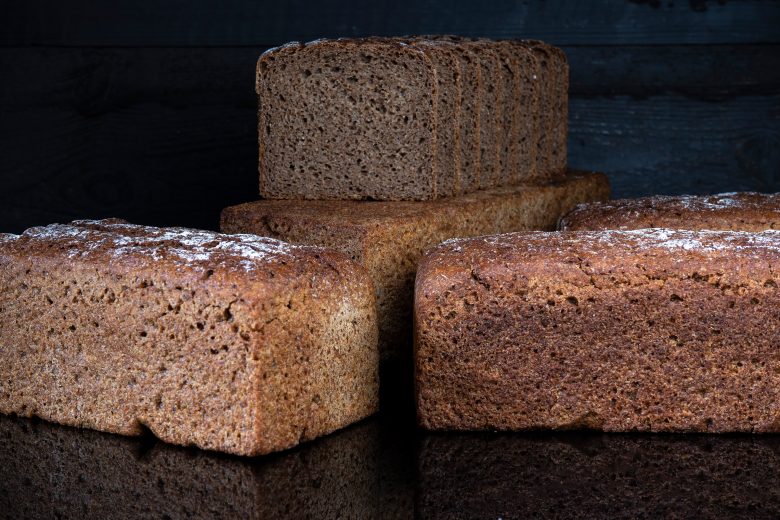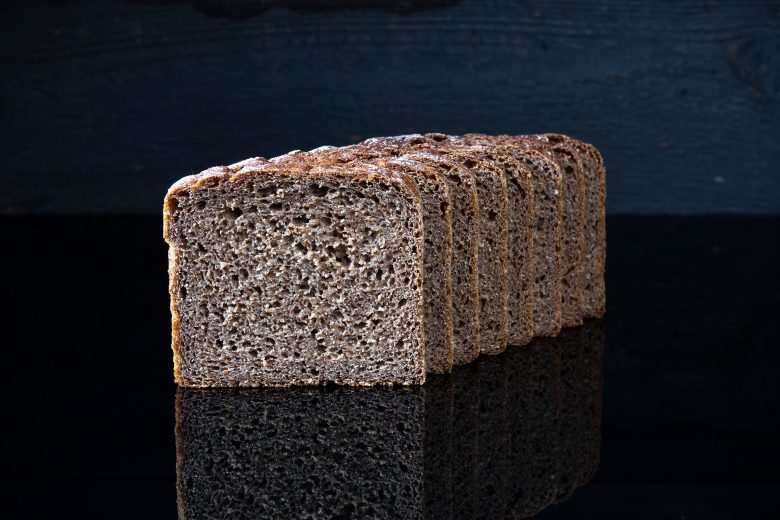Berliner Wholegrain Bread
For a long time I believed that a weak dough would be sufficient to aid in a long shelf life, but I was wrong on this point. Soakers and Scalds are an absolute must in preparation of wholemeal and wholegrain breads. The coarser and sharper a meal is ground, the more important it is to supply it with water in a preliminary stage.
Scald Vs. Soak
In the production of wholemeal and wholegrain breads, a slower water absorption in the husk and bran portions leads to success in making dough. It is therefore important to subject these flours to a pre-treatment!
Scald
A scald ensures a cohesive dough, a higher water absorption and hydration of the starch, which all lead to a longer shelf-life.
In order to achieve the best swelling of the scald, I recommend using boiling water. During the subsequent mixing in the kneading machine, the temperature of the scald will be between 50-70°C. The slow kneading that follows enables a better cohesion on the wholegrain meal and for this reason I highly recommend it.
Since the starch is largely gelatinized in the scald, the content of flour used should be maximized up to 60% of the total. If the scald are left to stand for longer than 4 hours, it is necessary to cool it down to 30°C. This can be corrected by the addition of salt which will prevent extraneous fermentation.
Starch complex- by scalding the meal, the flour contents are immediately softened and the hot water can penetrate into the grain better and faster. The starch is broken down and thus forms sugars which lead to better coloration and shelf-life in the bread.
NOTES:
- Meal type: Extra coarse, coarse, and medium
- Pouring temperature- 100°C
- Subsequent kneading in the kneading bowl for 15 minutes improves the cohesion of the crumb structure.
- Hydration approx. 200 – 300
- Soaking time 3-4 hours (with a longer storing time it is important to cool the scald to 30°C)
- An addition of salt prevents extraneous fermentation and lengthens the standing time at room temperature.
- 0,5 – 1% vinegar also prevents extraneous fermentation.
Soaker
Easily made straight from the water faucet and the most common pre-step used in my apprenticeship! In contrast to the scald process, the soaker is prepared cold. Since the soaking temperature is only 30°C and there is no gelatinization of the starch, a larger portion of the total meal can be soaked.
This serves to soften the coarser grain pieces and creates a pleasant bite. Through improper storage an extraneous fermentation can occur which impacts the taste of the bread. Extraneous fermentation can be avoided here by adding salt.
NOTES:
- Meal type: coarse, medium, and fine
- Preparation temperature 30-40°C
- Hydration 200
- If you want to be on the safe side, you can use the full amount of salt in the soaker.
- Soak 30 – 75% of the total meal amount
- With a salt addition the standing time can be up to 16 hours- for a longer storing time it is recommended to store it at 4°C.
Scalds and Soakers in comparison
| Soaker | Scald | |
| Bulk Water Temperature | 30 – 40°C | 100°C |
| Soaking Temperature | 20 – 30 °C | 50 – 70°C |
| Hydration | 200 | 200 – 300 |
| Quellstufenanteil | 30 – 75% | 30 – 60% |
| Shelf-life | good | very good |
| Taste | pungent tang | aromatic and lightly sweet (smells of a hay meadow) |
| Standing time | 12 – 18 hours | 4 hours |
| Crumb color | Rye brown | Whisky brown |
Recipe
for a dough weight of 1988g
Total Recipe
| 320g | Rye meal, medium | 32% |
| 300g | Whole grain rye flour | 30% |
| 200g | Rye meal. coarse | 20% |
| 130g | Whole grain spelt flour | 13% |
| 50g | Rye flakes | 5% |
| 860g | Water | 86% |
| 70g | finely ground leftover bread | 7% |
| 18g | Salt | 1,8% |
Wholegrain Sourdough
| 320g | Rye meal, medium |
| 260g | Water approx. 45°C |
| 40g | Starter |
Dissolve the starter in water and mix until lump-free with the rye meal. Target dough temperature 28-30°C / Maturity time 12-14 hours
Scald
| 200g | Rye meal, coarse |
| 50g | Rye flakes |
| 18g | Salt |
| 460g | Water 100°C |
Mix everything together slowly in the kneading machine for 10-15 minutes! From the slow mixing the meal gets a better cohesion and water absorption. Subsequently let it soak at room temperature.
Bread Soaker
| 70g | dried bread crumbs |
| 140g | luke-warm water |
Mix together 30 minutes before the dough production.
Main Dough
| 620g | mature wholegran sourdough |
| 728g | Scald |
| 210g | Bread Soaker |
| 300g | Whole grain rye flour |
| 130g | Whole grain spelt flour |
Production
- Mix together the sourdough, scald, soaker, and whole grain flour slowly for 15 minutes.
- Then knead on fast for a further 5 minutes (if the dough appears to e too firm, additional water can be added).
- After the dough production, let the dough mature for 30-40 minutes.
- Then weigh out as desired, work into rounds, and place into forms.
- After working up, cover the dough and place it in a warm spot to rise.
- The final proof takes about 50-70 minutes (depending on the activity level of the sourdough- for those inclined, 5g of yeast can be added to the main dough).
- The pan breads are baked with strong steam at 230°C
- Immediately reduce the oven temperature to 195°C when the bread is inserted.
- Total baking time should take 100-120 minutes.


